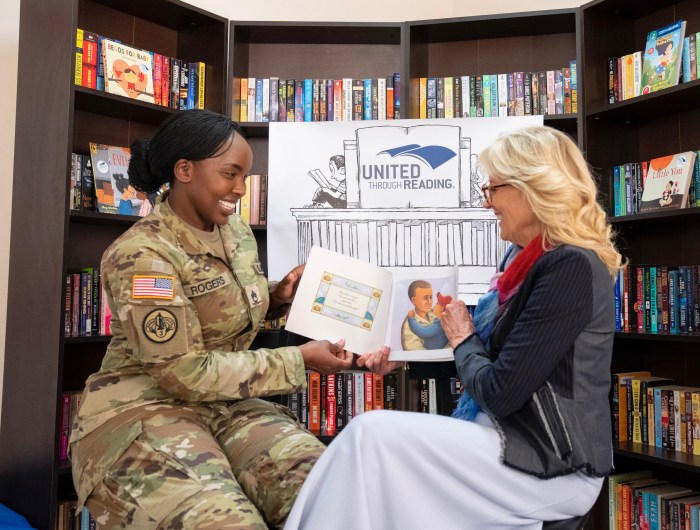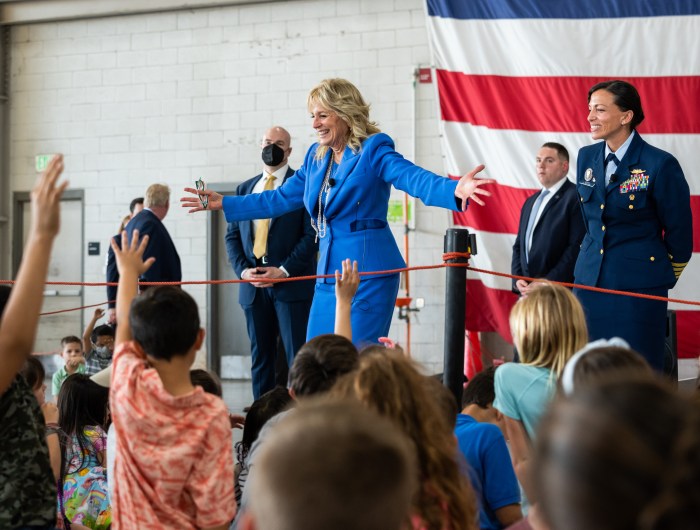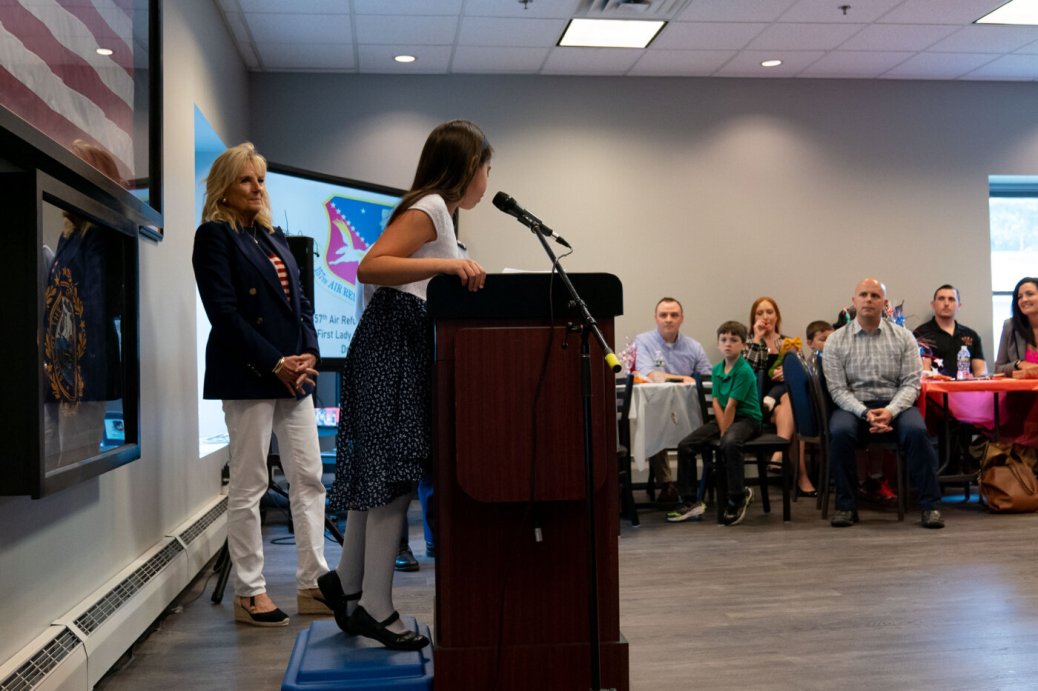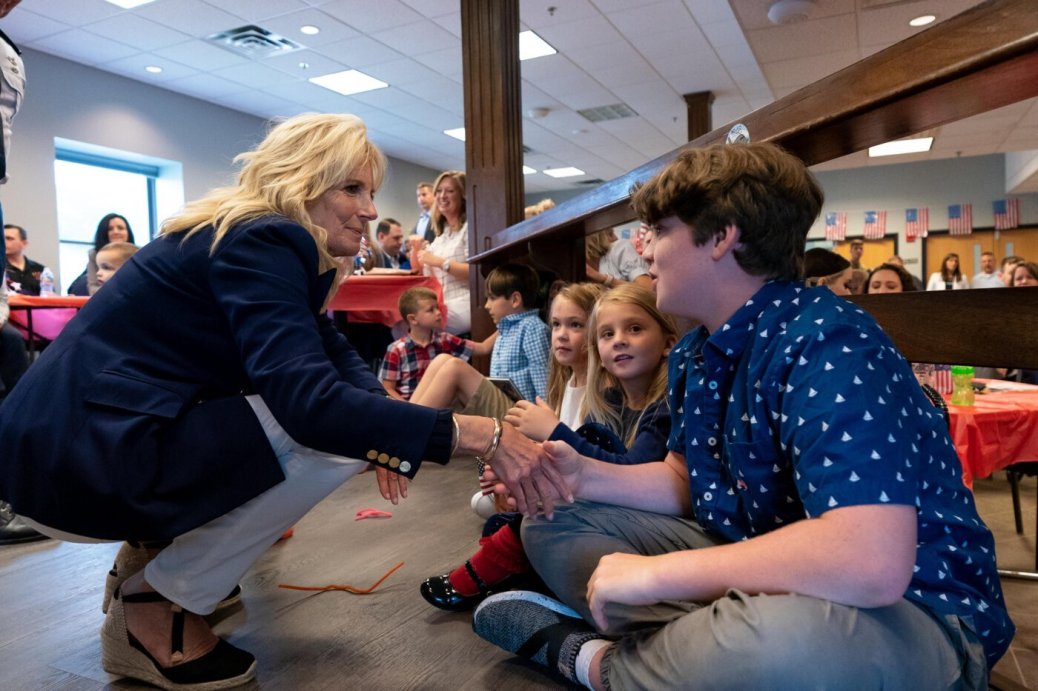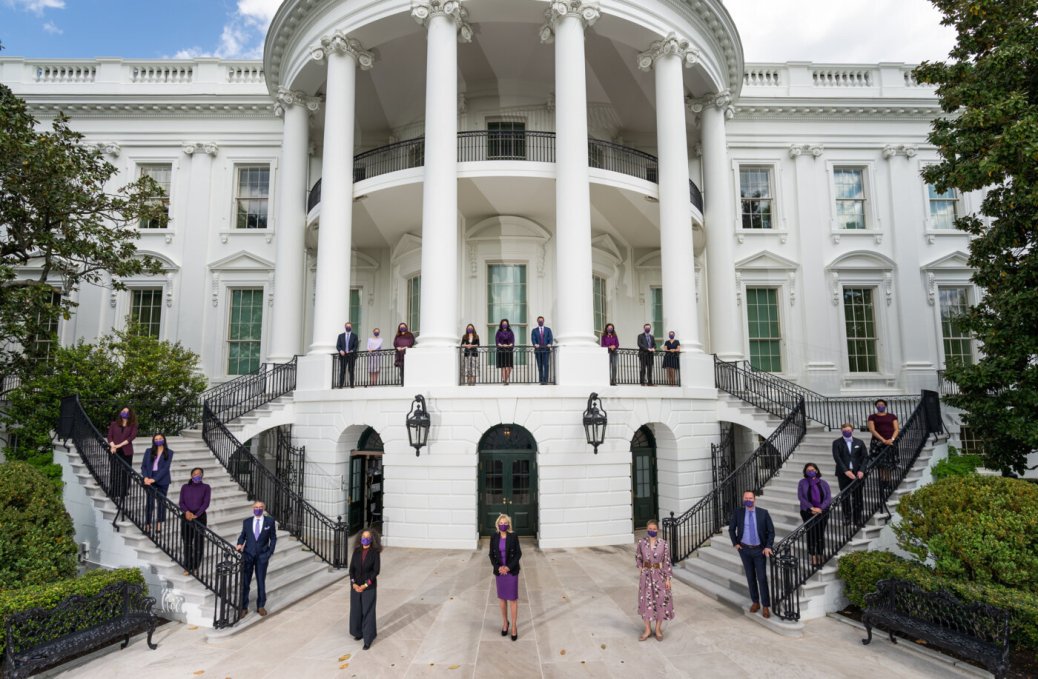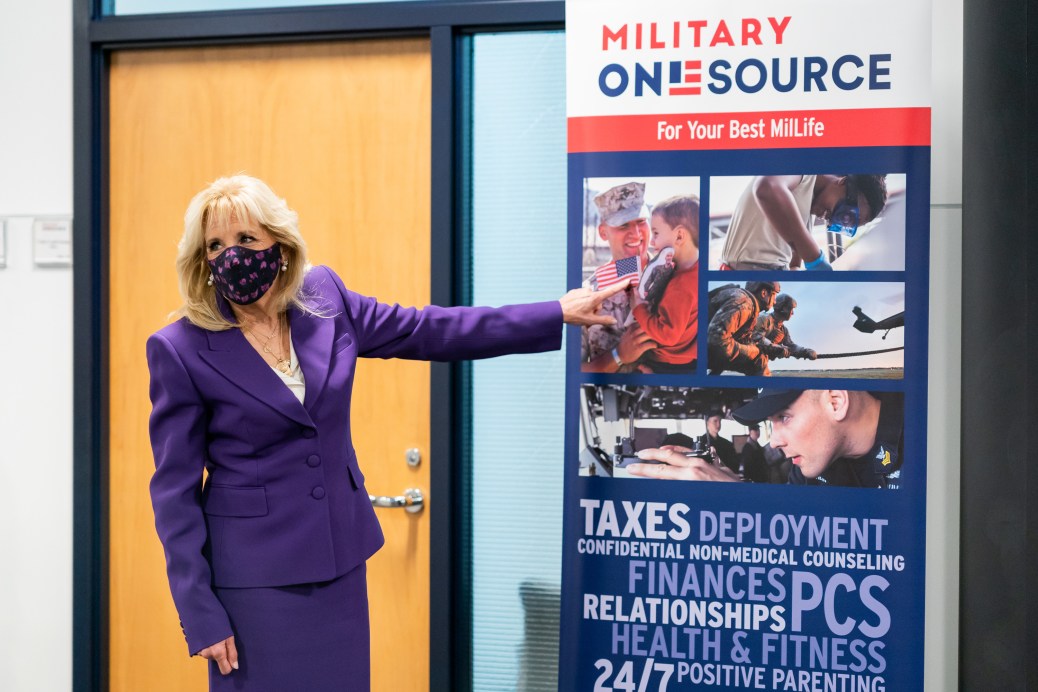Joining Forces
Our Mission Is To Support Those Who Also Serve:
military And Veteran Families, Caregivers, And Survivors.
“We have an all-volunteer force—and it continues only because generations of Americans see the honor, dignity, and patriotism of military service. How can we hope to keep our military strong if we don’t give our families, survivors, and caregivers what they need to thrive? That’s what Joining Forces is about.”
FIRST LADY JILL BIDEN, AT A VIRTUAL JOINING FORCES EVENT ON APRIL 7, 2021.

Mission Statement
The mission of Joining Forces is to support those who also serve: military and veteran families, caregivers, and survivors.
What is Joining Forces?
Joining Forces is a White House initiative to support military families, which includes: families of service members and veterans, caregivers and survivors. Our work is driven by their experiences.

Focus Areas
Guided by the life experiences and the perspectives voiced during in-person and virtual listening sessions with military families and stakeholders, the work and priorities of Joining Forces will center on the needs of military families in the areas of: Employment and Entrepreneurship; Military Child Education; and Health and Well-Being.
- Employment and Entrepreneurship: The Department of Defense’s 2019 Active Duty Spouses Survey indicates, even pre-pandemic, a military spouse unemployment rate of approximately 22%. Frequent moves and transfers, state licensing requirements, child care (costs, long waitlists for on-base providers, and lack of access to off-base providers), caregiving, and deployments, all contribute to the unique challenges military spouses face to building sustainable and long-term careers. Joining Forces will work with government at all levels and the non-profit and private sectors to mitigate these challenges and drive economic opportunities. We will work with employers to create more flexible, transferable, and remote job opportunities for military spouses, as well as increasing resources for those interested in entrepreneurial endeavors. We will also ensure that military families are included in the administration’s overall policies aimed at improving economic security for all families.
- Military Child Education: There are more than 2 million children in classrooms in the United States whose parents are active-duty military service members, National Guard or reservists, or military veterans. Military life can be unpredictable: these children often experience multiple moves, extended separation from family members, and increased fear for their parents’ safety during deployments. We must understand and account for the lifelong impact of service on military-connected children and ensure that children in veteran families, caregiving families, and surviving families will also be included in the initiative’s work. We also recognize that military children with disabilities, including those enrolled in DOD’s Exceptional Family Member Program, face additional challenges with changes of duty station. Joining Forces will advance programming to support military-connected children in their classrooms, and help ease the burdens created by the highly mobile military lifestyle.
- Health and Well-Being: Supporting the overall physical, social, and emotional health of military families is a national security imperative. While our country lauds the strength and resilience of military families, it is critical to acknowledge that they too shoulder the weight of the past 20 years of sustained warfare. Members of military families and caregivers may experience mental health challenges like depression, anxiety, and substance abuse. Caregiving for a wounded, ill, or injured family member can have an outsized impact on a caregiver’s health, financial stability, and economic security. Additionally, some military families report a lack of consistent access to enough food to live an active, healthy lifestyle. The global pandemic over the past year has intensified these stressors. We will also work closely with service providers in the civilian community to ensure they have the knowledge and tools to effectively support military and veteran families, caregivers, and survivors.
Resources
Military OneSource is a 24/7 connection to information, answers and support to help military families reach their goals, overcome challenges, and thrive. As a member of a military family, you are eligible to use this no-cost program anytime, anywhere. Turn to Military OneSource for non-medical counseling, spouse employment help, relocation and deployment tools, and much more. Visit the website or download the My Military OneSource mobile app. Download the My Military OneSource mobile app or access the Military OneSource website.
Military families can make owning a business a reality. The Spouse Education and Career Opportunity tools and resources are available to help research, investigate the possibilities, and find support to plan and grow your business. Learn more from the SECO Entrepreneurship site.
The Department of Defense Military Spouse Employment Partnership connects military spouses with hundreds of partner employers who have committed to recruit, hire, promote, and retain military spouses. Find a job on the Military Spouse Employment Partnership portal.
Military Spouse Transition Program (MySTeP) is made for military spouses to provide support and encouragement throughout the service member’s time in the military. MySTeP helps plan and prepare for the life your family wants after transitioning out of the military, whenever that time comes. Connect with the right resources at the right time with MySTeP online resources.
Military families may be eligible for Department of Defense child care fee assistance to help pay for child care providers in the community if unable to access care on an installation. Find more information about Military Child Care Fee Assistance Programs online at Childcare.gov.
School Liaisons serve as the primary DoD point of contact for school-related matters for military families and provide parents with information on available schooling options and support for transitions, deployment, homeschooling, special education, and other Pre-K through 12 education matters. They serve as the primary liaison between school districts, commanders, community stakeholders, and parents. Access educational resources to support military children.
EFMP & Me is a digital tool offering families with special needs 24/7 access to standardized information and resources. The tool is customized to meet the specific needs of service members, family members, providers, and military leaders and enables users to quickly navigate services, connect with resources, and advocate for themselves and family members with special needs. Use the Exceptional Family Member Program tool.
The Department of Veterans Affairs provides support, resources, and programs to caregivers of veterans. Visit the VA Caregiver Support website.
Vet Centers are community-based counseling centers that provide a wide range of social and psychological services, including professional readjustment counseling to eligible veterans, active duty service members, including National Guard and Reserve components, and their families. Learn more online at VA.gov.
The Month of the Military Child Toolkit is collaboration between Joining Forces and the Departments of Defense, Education, and Veterans Affairs to help build support for military-connected students in the classroom. With activities for elementary, middle, and high school students, the toolkit assists educators and school administrators as they form a greater understanding of the experience of military-connected children.
The Guide to Recruiting and Hiring Military Spouses is designed to:
- Introduce hiring managers and supervisors to the strengths and diversity of military spouses in the Federal workforce;
- Provide hiring managers and supervisors with information on relevant authorities for hiring military spouses;
- Share resources with hiring managers and supervisors to support the recruitment and hiring of military spouses; and
- Inform hiring managers and supervisors of leading practices in use across departments and agencies when it comes to recruiting and hiring military spouses.
Crisis Line Information
If you or a loved one are in crisis, you don’t have to face it alone. The Military Crisis Line offers free, confidential support, 24 hours a day, 7 days a week, 365 days a year for all servicemembers, including members of the National Guard and Reserve, veterans, their families, caregivers and survivors.
Contact the Military Crisis Line if you or a loved one are thinking about hurting yourself or having thoughts of suicide. The Military Crisis Line is staffed by caring, qualified responders, many of whom are veterans and understand the challenges that members of the military and their families face.
Call 1-800-273-8255 and Press 1, Chat online or Text 838255.
Joining Forces In Photos
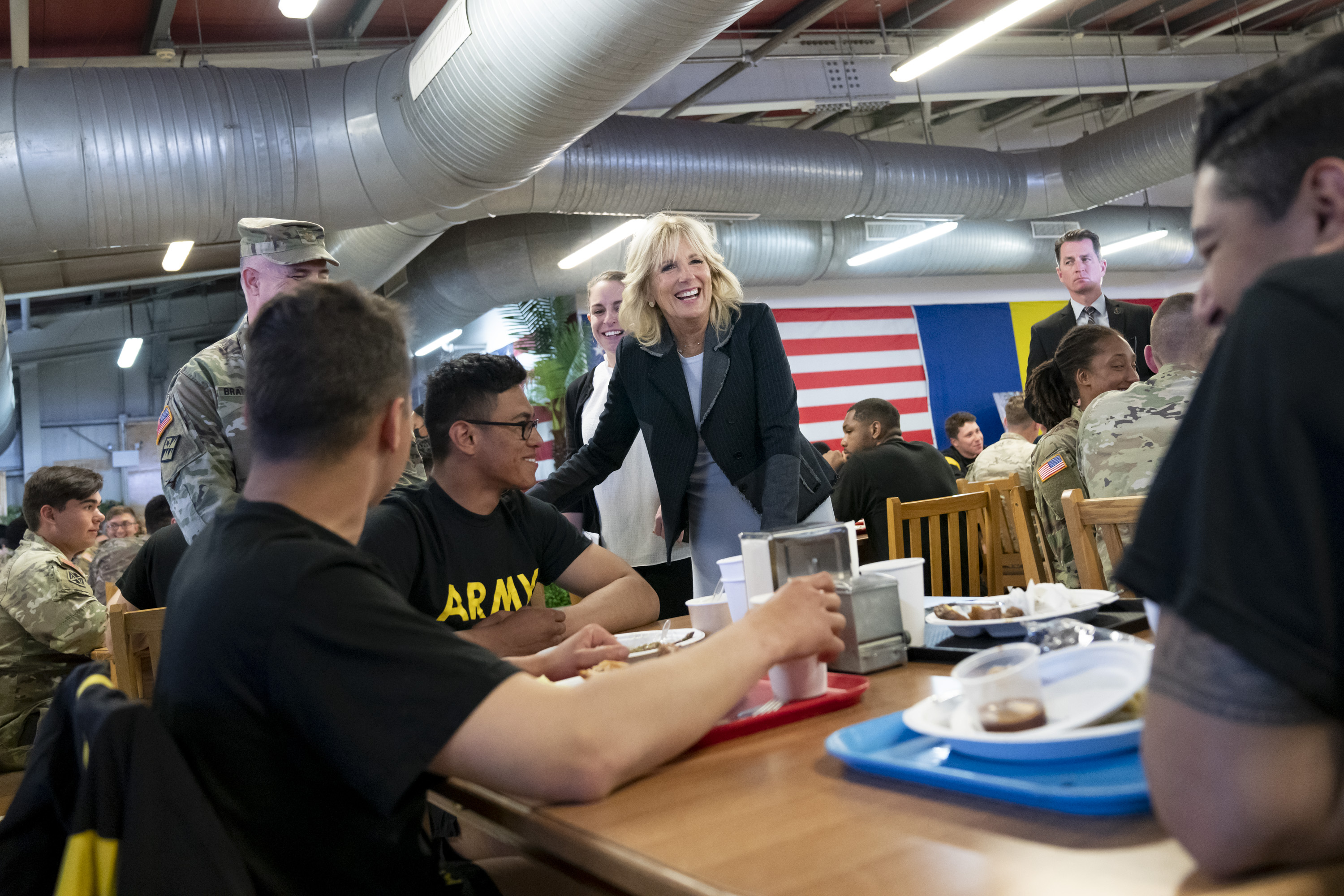
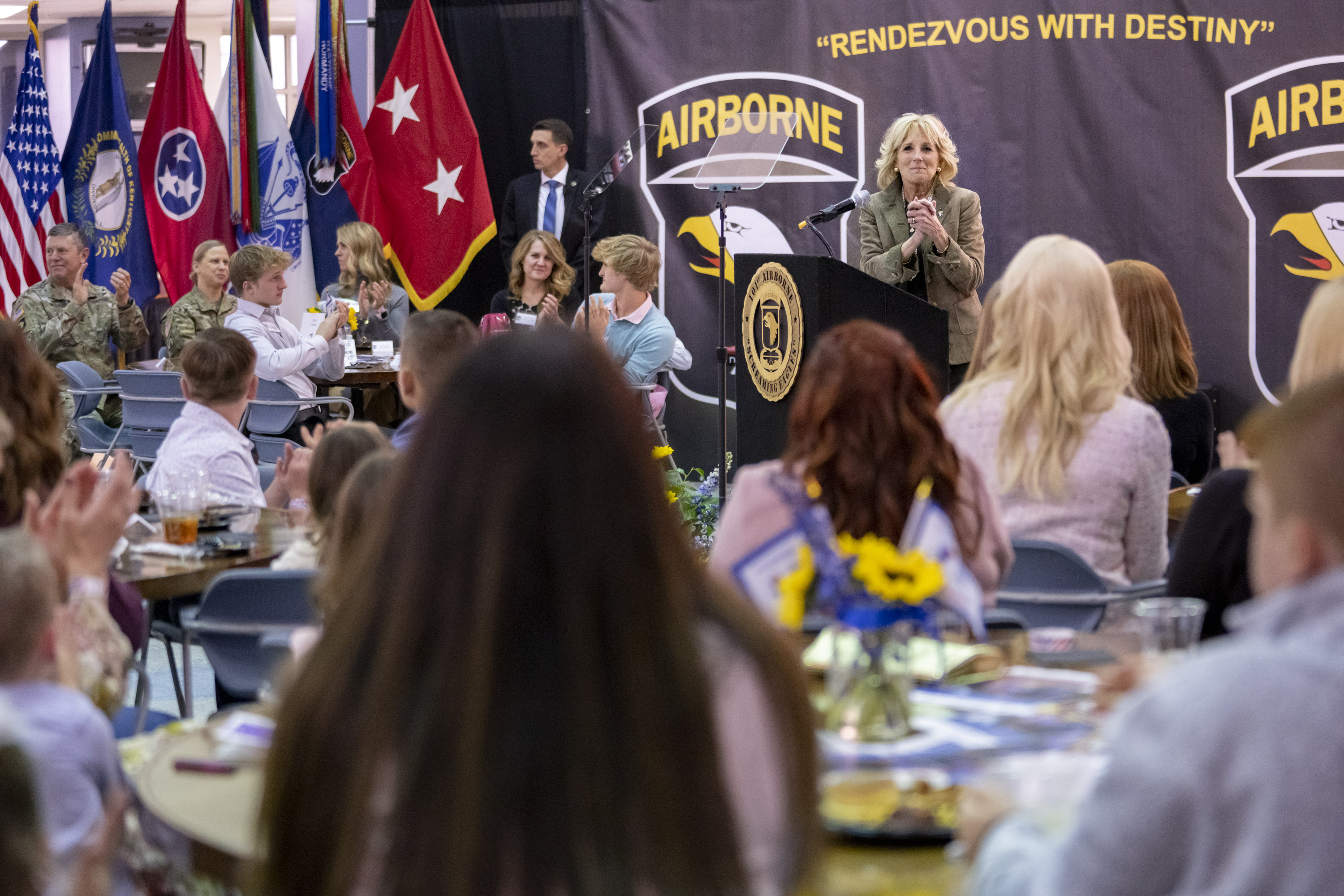
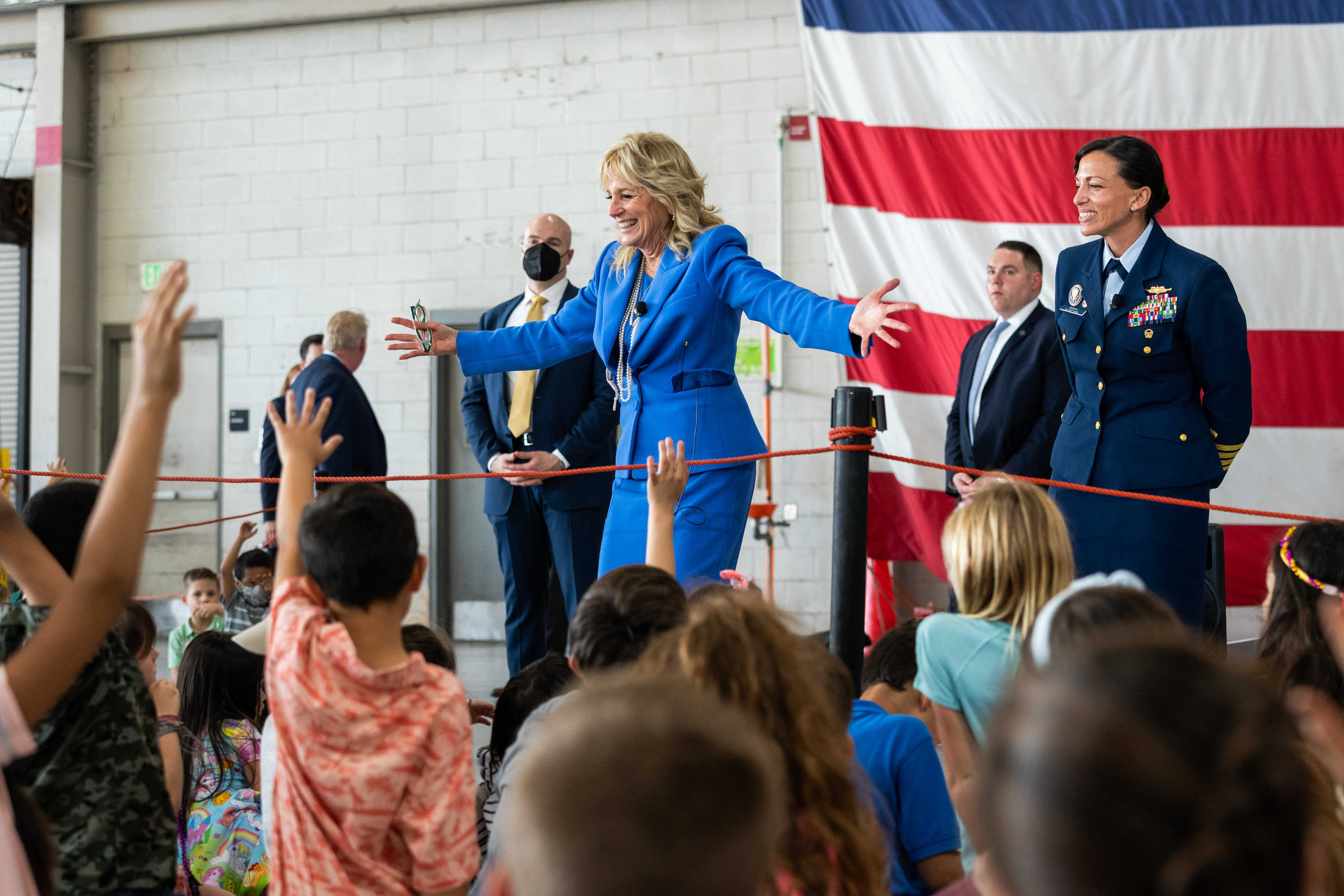

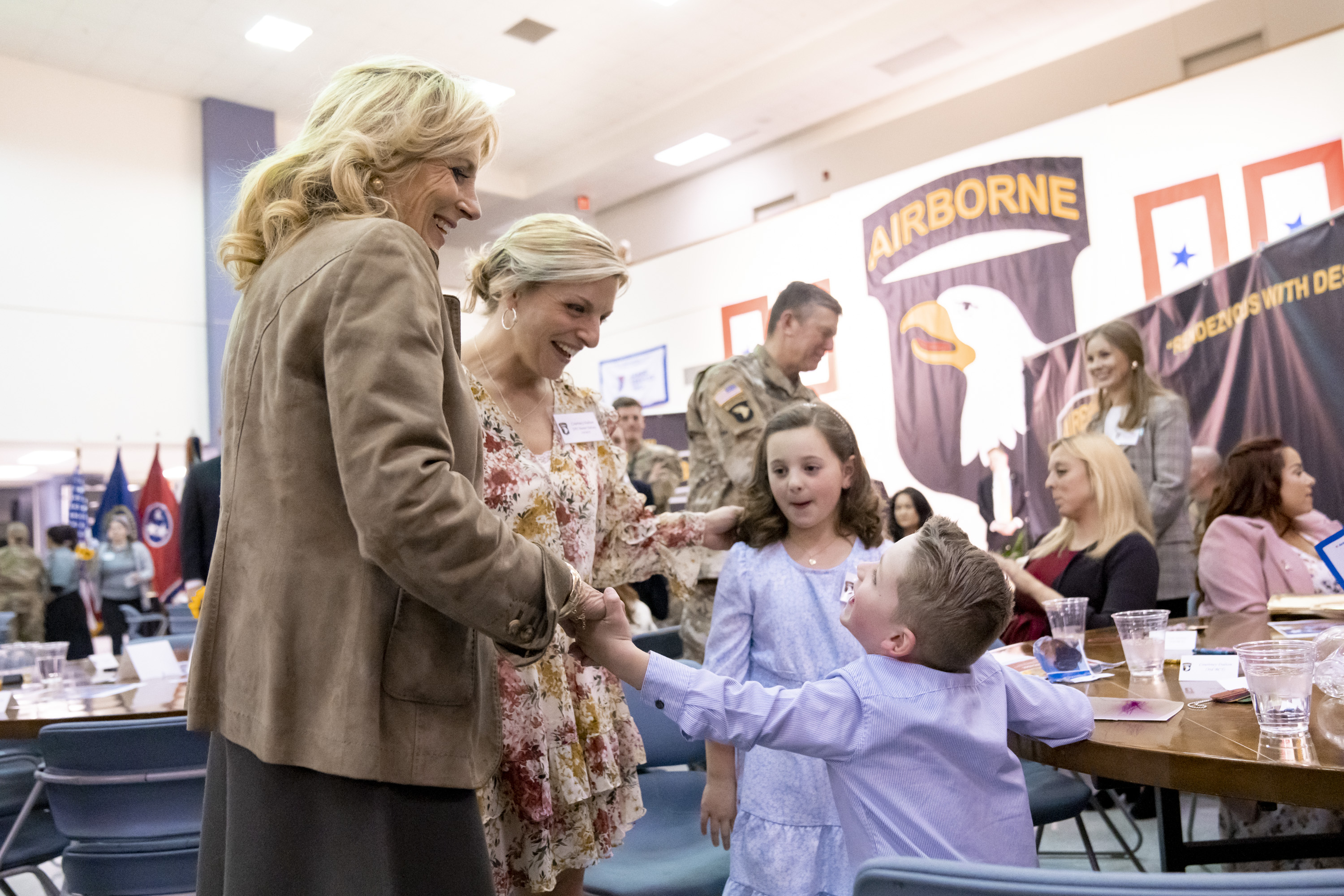
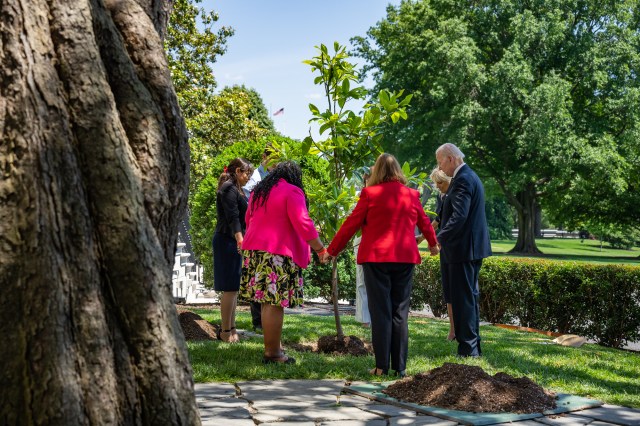
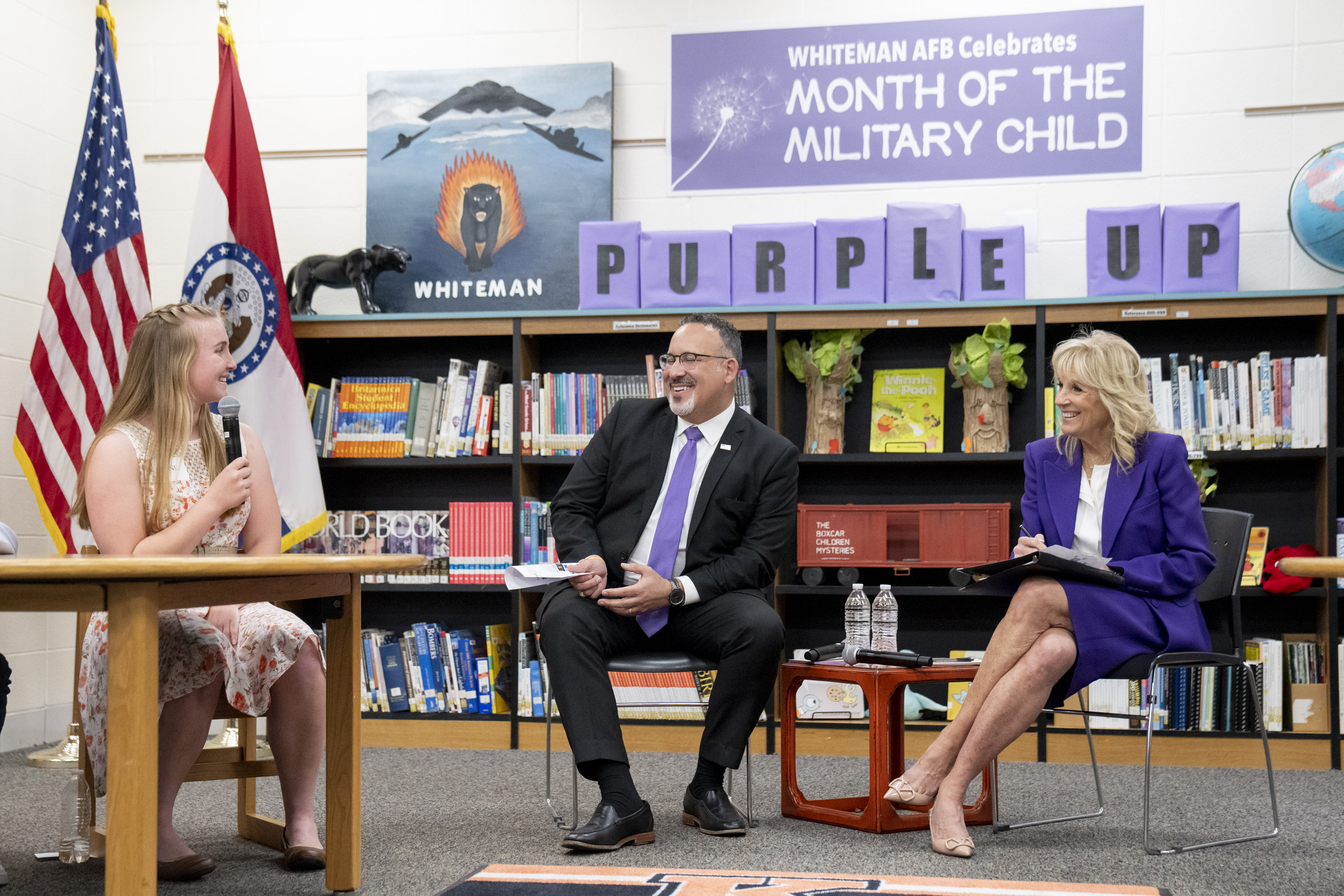
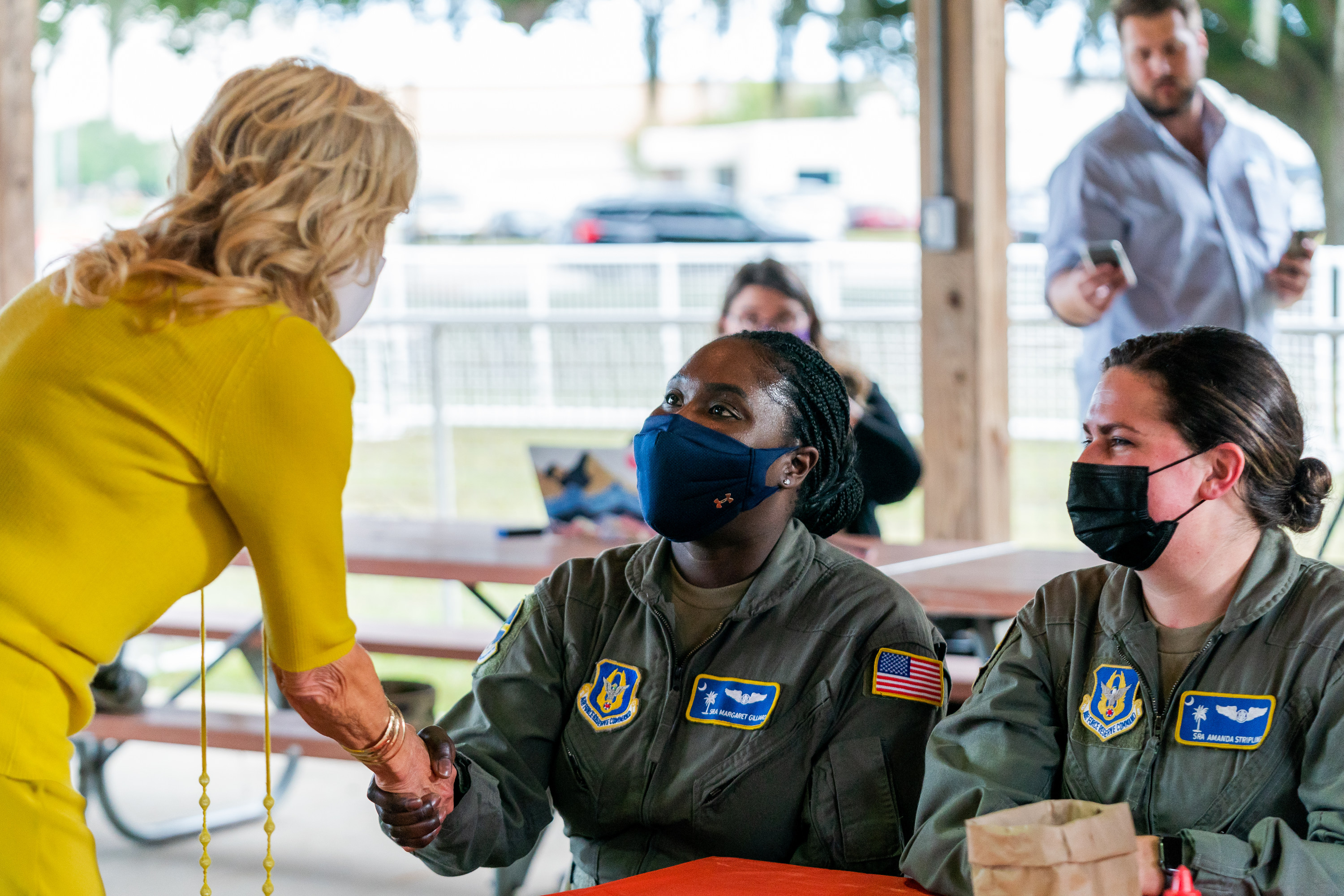

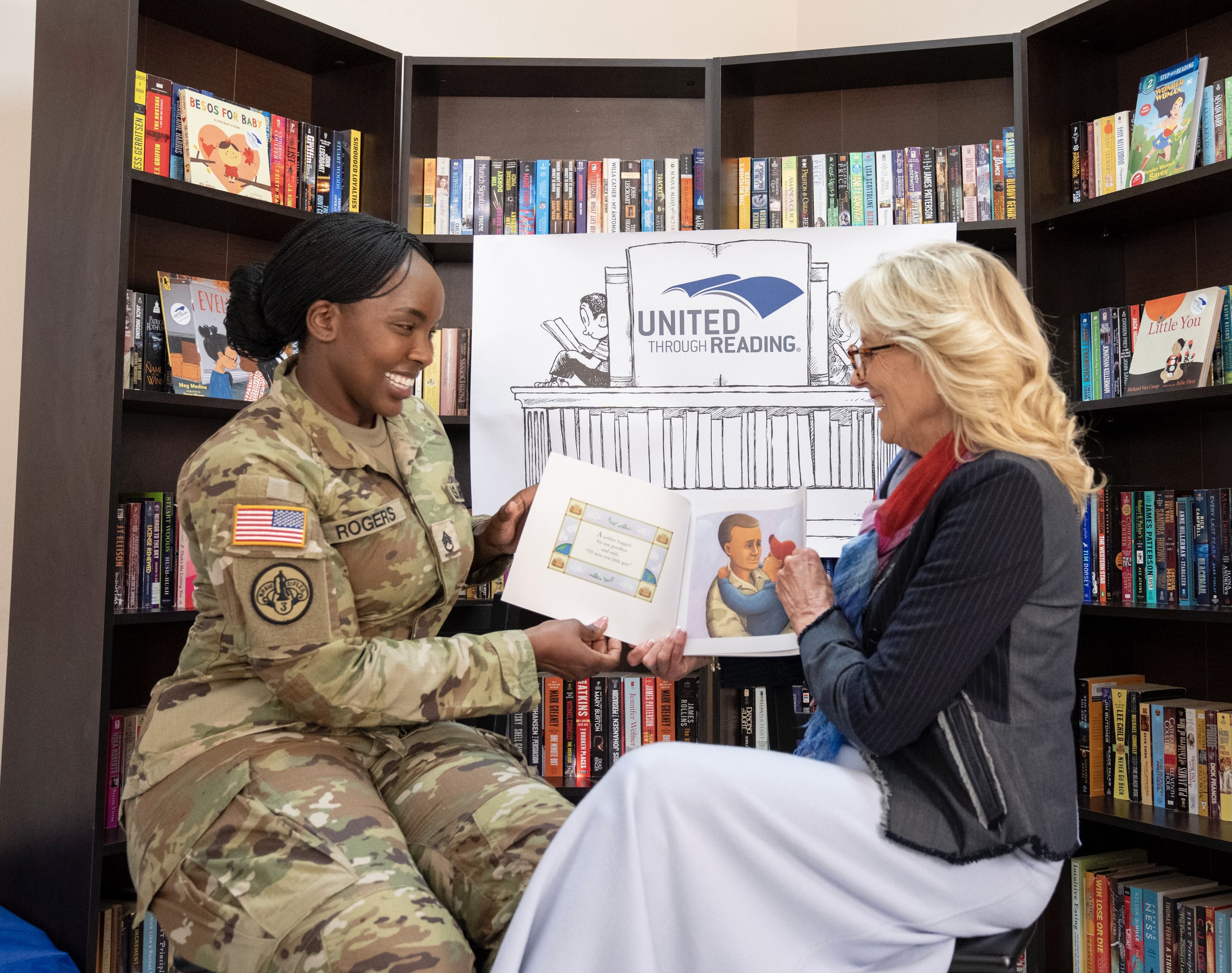


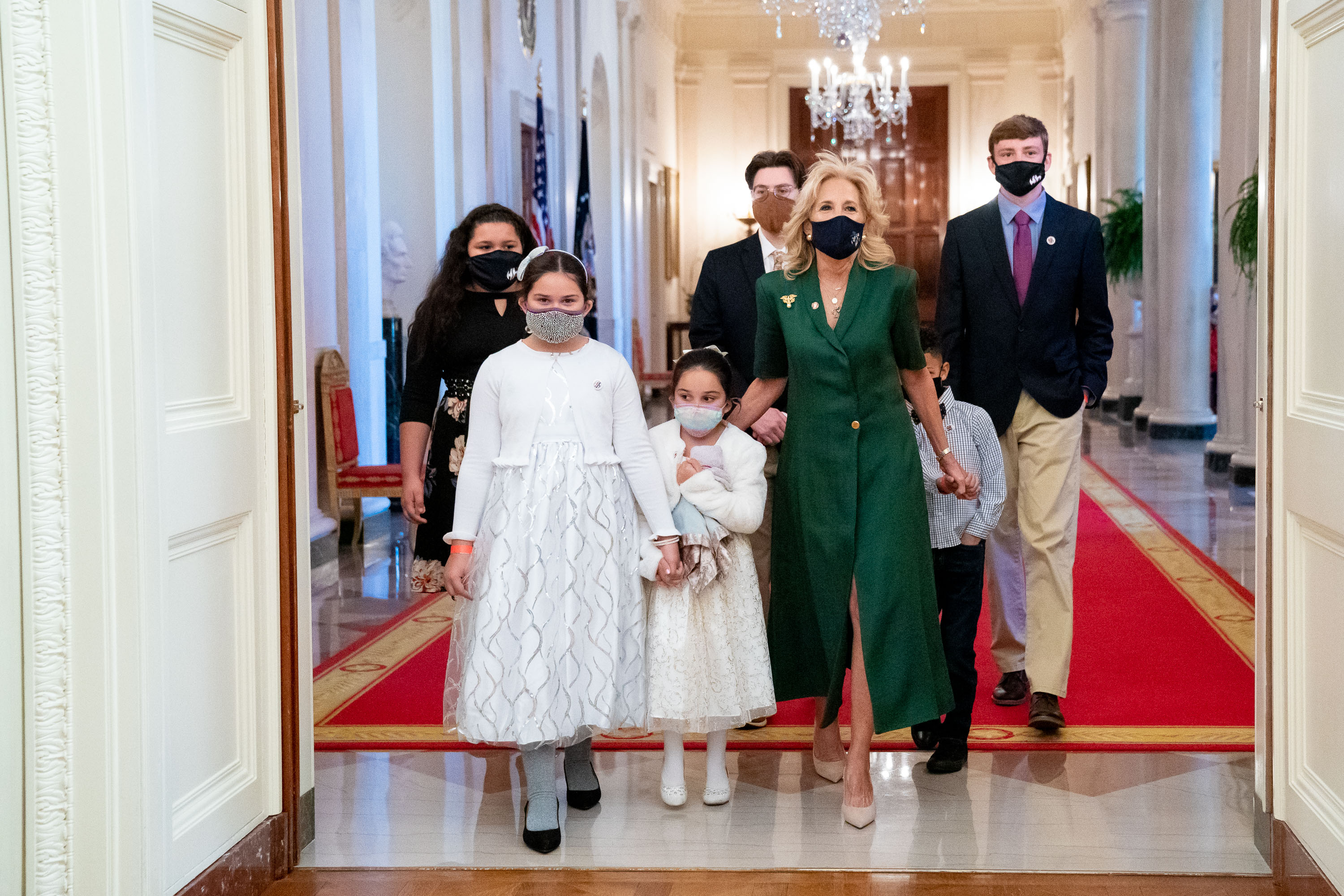

Latest
NBC Nightly News: Joining Forces Executive Director Rory Brosius on the First Lady’s East Wing Exhibit Featuring Art by Military Connected Kids
Read the Latest Updates


